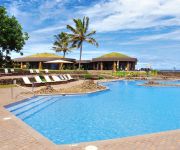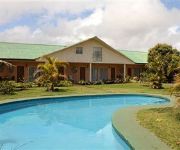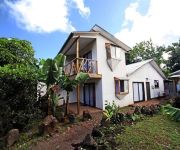Safety Score: 3,3 of 5.0 based on data from 9 authorites. Meaning please reconsider your need to travel to Chile.
Travel warnings are updated daily. Source: Travel Warning Chile. Last Update: 2024-08-13 08:21:03
Delve into Hanga Piko
Hanga Piko in Región de Valparaíso is located in Chile about 2,341 mi (or 3,767 km) west of Santiago, the country's capital town.
Current time in Hanga Piko is now 12:23 PM (Wednesday). The local timezone is named Pacific / Easter with an UTC offset of -5 hours. We know of 1 airports close to Hanga Piko. The closest airport in Chile is Mataveri Airport in a distance of 1 mi (or 2 km), South-East. Besides the airports, there are other travel options available (check left side).
There is one Unesco world heritage site nearby. It's Rapa Nui National Park in a distance of 59 mi (or 94 km), East. If you need a hotel, we compiled a list of available hotels close to the map centre further down the page.
To further explore this place, just scroll down and browse the available info.
Hotels and Places to Stay
Hangaroa Eco Village & Spa
Hare Noi
Hotel Hare Boutik
Tupa Hotel
Marae Premium Cabins
Hotel Oceania Rapa Nui
Hotel Manavai
Hotel Marari
Cabanas Tautira
Cabañas Keuhenua
Videos from this area
These are videos related to the place based on their proximity to this place.
Tour Astonishing Easter Island: Hanga Roa Town
http://www.TravelsWithSheila.com Most travelers come to Easter Island on a 4 day/3 night package, as did we and then explore the exact same sights in the exact same order. We selected Hotel...
Tauraa Hotel Tour in Hanga Roa, Easter Island
A short tour around the Tauraa Hotel in Hanga Roa on Easter Island (Rapa Nui, Isla de Pascua). I stayed at the Tauraa Hotel for five nights and could not be happier with my stay. About...
Moai @ Hanga Roa
Moai @ Hanga Roa village. http://www.sekai1.co.jp/yappy/ ブログ「有給休暇で地球を闊歩・ビジネスマン40日間世界一周」
Polynesia Isla de Pascua Hanga Roa. Ennio 2010
Foto e clips del soggiorno all' Isola di Pasqua im Maggio 2010.
Hanga Roa Township on Easter Island
http://easterislandguidebook.com The town of Hanga Roa follows the coast at one end of Easter Island. The view is of the bay where the cargo ships anchor to unload and where most of the surfing...
Hanga Roa from Puna Pau
http://easterislandguidebook.com Puna Pau is the volcanic scoria quarry where the topknots for the Moai were made. From here there is a panoramic view of the town of Hanga Roa on Easter Island....
eclips2010
Video of the total eclips at Ahu Orongo, Hanga Roa, Rapa Nui on 11 july 2010. Made during the SNP trip "Ogen die naar de hemel kijken"
Matato'a - Danses et chants - île de Pâques
Le Groupe Matato'a interprète des musiques et danses de l'île de Pâques, au restaurant « du bout du monde» à Hanga Roa. C'est un métissage musical (latino, rock, reggae, pop, jazz...)...
Unsere Reise um die Welt. 11.03.2014 Hangaroa - Osterinsel - Chile. 77. Video.
Unsere Reise um die Welt vom 22.12.2013 bis 12.04.2014 Die Reiseroute zu unserer Reise: ART074 | 111 Tage | 22.12.2013 - 12.04.2014 | Artania Weltreisen 2013/2014 22.12.2013 - 12.04.2014...
Videos provided by Youtube are under the copyright of their owners.
Attractions and noteworthy things
Distances are based on the centre of the city/town and sightseeing location. This list contains brief abstracts about monuments, holiday activities, national parcs, museums, organisations and more from the area as well as interesting facts about the region itself. Where available, you'll find the corresponding homepage. Otherwise the related wikipedia article.
Hanga Roa
Hanga Roa is the main town, harbour and capital of the Chilean province of Easter Island. It is located in the southern part of the island's west coast, in the lowlands between the extinct volcanoes of Terevaka and Rano Kau. The population of 3,304 (2002 census) comprises 87 percent of the total population of the island.
Mataveri International Airport
Mataveri International Airport or Isla de Pascua Airport is located at Hanga Roa on Rapa Nui (Isla de Pascua in Spanish). The most remote airport in the world, Mataveri International Airport is 3,759 kilometres from Santiago, Chile (SCL) which has scheduled flights to it on the Chilean carrier LAN Airlines (formerly LanChile).
Rapa Nui National Park
Rapa Nui National Park is a World Heritage Site located on Easter Island, Chile. The park is divided into seven sections: Rano Kau Puna Pau (named after the quarry where the pukao were carved). Rano Raraku (named after the quarry where most of the moai were carved). Anakena - Ovahe Ahu Akivi Costa Norte Hanga Roa (Urban Area).
Orongo
Orongo is a stone village and ceremonial centre at the southwestern tip of Rapa Nui. The first half of the ceremonial village's 53 stone masonry houses were investigated and restored in 1974 by American archaeologist William Mulloy. In 1976 Mulloy assisted by Chilean archaeologists Claudio Cristino and Patricia Vargas completed the restoration of the whole complex which was subsequently investigated by Cristino in 1985 and 1995.
Puna Pau
Puna Pau is a quarry in a small crater or cinder cone on the outskirts of Hanga Roa in the south west of Easter Island. Puna Pau also gives its name to one of the seven regions of the Rapa Nui National Park. Puna Pau was the sole source of the red scoria that the Rapanui used to carve the pukao (topknots) that they put on the heads of some of their iconic moai statues. The stone from Puna Pau was also used for a few non-standard moai including Tukuturi and also for some petroglyphs.
Ahu Tahai
The Tahai Ceremonial Complex is an archaeological site on Rapa Nui in Chilean Polynesia. Restored in 1974 by the late Dr. William Mulloy, an American archaeologist, Tahai comprises three principal ahu from north to south: Ko Te Riku (with restored eyes), Tahai, and Vai Ure. Visible in the distance from Tahai are two restored ahu at Hanga Kio'e, projects that Mulloy undertook in 1972.
Ahu Vinapu
Ahu Vinapu is an archaeological site on Rapa Nui in Chilean Polynesia. The ceremonial center of Vinapu includes one of the larger ahu on Rapa Nui. The ahu exhibits extraordinary stonemasonry consisting of large, carefully fitted slabs of basalt. The American archaeologist, William Mulloy investigated the site in 1958.
























